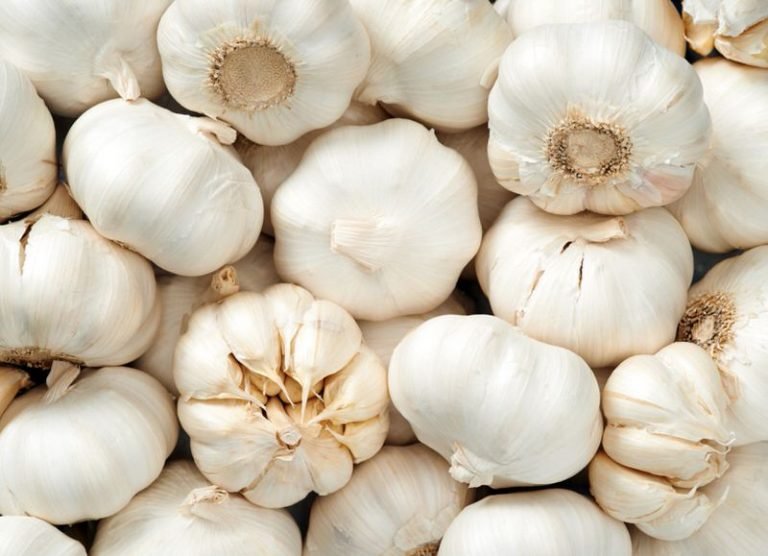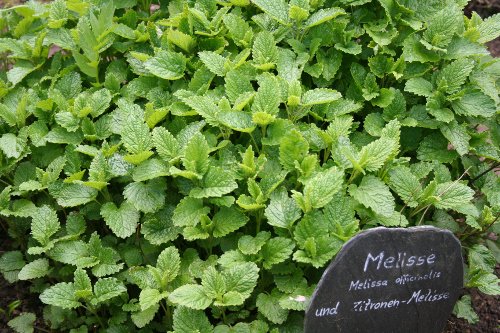Garlic has been shown to be a food with incredible benefits against high cholesterol and triglyceride levels. You know why? Discover its properties.

What is garlic and why is it so good against cholesterol?
If there is a very powerful food, very beneficial for health, and tremendously valued for its qualities and properties, garlic stands out precisely for being one of them. And it is that thanks to its benefits it becomes an essential food in the fight against high cholesterol.
In fact, there are those who advise consuming 1 raw garlic a day, in the same way that it is also recommended to take 1 apple per day. Be that as it may, there is no doubt that garlic becomes an extremely interesting food in the diet of all those people who have high levels of cholesterol and triglycerides.
You know why? Mainly because of its content in allicin and ajoene, two substances that help in a very positive way in case of high cholesterol and triglycerides. This has been advised by the Spanish Heart Foundation (FEC) itself, who recommended the importance of including garlic in the daily diet, mainly because of its interesting qualities on cardiovascular health.
Not surprisingly, different scientific studies have confirmed and demonstrated the different beneficial effects that regular consumption of garlic has on high cholesterol levels. For example, a study, consuming raw garlic in the long term positively helps in people with risk of cardiovascular disease.
What are the benefits of garlic against cholesterol? Its allicin content
Like avocado, garlic can be really good against cholesterol, since among other issues, and due to its benefits and properties, garlic helps lower high cholesterol. Why? These anti-cholesterol qualities are due to the presence of allicin in the composition of this wonderful food.
This substance consists of a sulfur component that positively helps to promote a more adequate functioning of our cardiovascular health, thanks to the fact that it purifies the blood. But we find allicin in garlic when we chop or split it, since we need a certain chemical process to take place for it to appear.
This is easily explained in the following way: when we crush, split or crush garlic, a sulfur compound known as allicin is released, which is the end result of the conversion of alliin. That is, allicin is produced when alliin comes into contact with air.
In addition, garlic not only contains Alice, but two other compounds with interesting benefits in the case of cholesterol: ajoene and adenosine. These two substances have an outstanding anticoagulant action, helping in turn to lower LDL cholesterol.
It is something that we already discovered in the article the benefits of eating crushed or crushed garlic, when we told you that garlic precisely provides a greater amount of benefits when it is consumed crushed, precisely because of the release of most of its sulfur compounds.
How to eat garlic to enjoy its benefits against cholesterol?
When it comes to enjoying the anti-cholesterol qualities that garlic gives us, the key is to release allicin, the sulfur compound to which we owe its important benefits against cholesterol. And, to achieve this, it is necessary to crush or crush it, and also consume it raw.
Therefore, we only need to peel one or two cloves of garlic, cut it into pieces or crush it well with the help of a knife or mortar. It is enough to eat one or two cloves of garlic a day.
However, since garlic is too spicy and odorous, and if we cook it loses 90% of its important medicinal properties, the most advisable thing in anti-cholesterol treatments is to take it in the form of capsules, or try to consume it crushed and raw if we do not suffer stomach problems (or stomach tenderness).
Properties of garlic against cholesterol, in summary
- It contains allicin, which helps lower high cholesterol and triglycerides.
- Prevents arteriosclerosis.
- Increases good cholesterol (HDL).
- Contains natural blood thinners that prevent clot formation.
Why should we not see cholesterol as an enemy to our health?
We already mentioned in the article Cholesterol is NOT bad for your health, which in reality, although it has been tremendously criticized and today is seen as a real enemy (due to a wide variety of advertising promotions of products and foods with supposed qualities to help to lower it), cholesterol is essential for our body.
It is a type of lipid that participates very actively in a wide variety of important functions in our body. For example, it is part of plasma membranes, it is a precursor of sex hormones (testosterone, estrogens and progesterone), it is a precursor of corticosteroidal hormones (cortisol and aldosterone), it is a precursor of vitamin D, and it helps in the digestion of fats being a component of bile salts.
Therefore, cholesterol is essential and only becomes a problem when its blood levels are high. That is, when total cholesterol levels exceed 200 mg/dl; or when the level of low-density lipoproteins (LDL cholesterol) is higher than 130 mg/dl.
In turn, we must pay special attention to the values of high-density lipoproteins (HDL cholesterol), since it is considered a risk for cardiovascular health if it is less than 35 mg/dl. In men and 40 mg / dl. In women.































